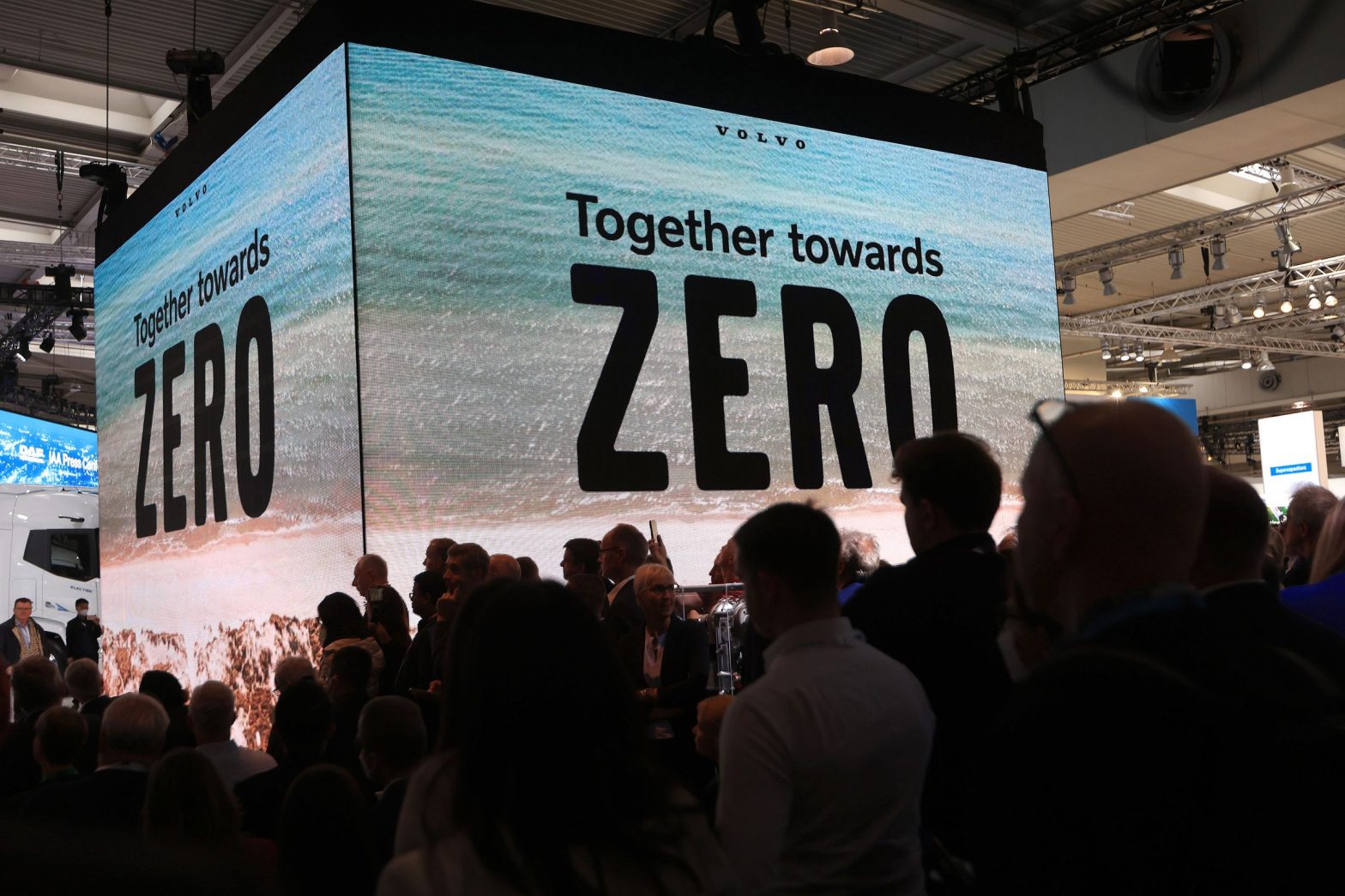/
Big businesses wrote a letter to heads of state asking them to adopt a global deal to ‘phase out’ fossil fuels. It’s expected to be a hot topic at upcoming international climate negotiations.
Share this story
:format(webp)/cdn.vox-cdn.com/uploads/chorus_asset/file/25024690/1243378800.jpg)
More than 130 companies, including Volvo Cars, Ikea, Unilever, Nestlé, and AstraZeneca, signed a letter calling on governments to adopt a global plan to phase out fossil fuels without carbon capture during upcoming international climate negotiations.
“Our businesses are feeling the impacts and cost of increasing extreme weather events resulting from climate change,” the letter says. “We have an important role to play in sending a clear signal about our future energy use, which is rapidly becoming cleaner through renewables.” It was coordinated by the We Mean Business Coalition that advocates for net-zero greenhouse gas emissions.
Together, the signatories represent close to $1 trillion in global annual revenue from diverse industries, from beer (Heineken) to pharmaceuticals (Bayer) and telecommunications (Vodafone Group). There are a couple of notable names in tech: eBay and Hewlett Packard Enterprise. But other tech giants that have been pretty vocal about their own climate goals — like Apple, Google, and Amazon — are absent from the list of signatories.
It goes to show how difficult the road ahead could be to get a consensus on a global deal to ditch fossil fuels. Companies and governments are increasingly showing off their efforts to fight climate change. But many are stopping short of a commitment to no longer use the fossil fuels causing global warming — particularly those that stand to lose business from such a pact.
The signatories say they are “taking action and working toward phasing out our use of fossil fuels.” Even so, they write that they “cannot make this transition securely or efficiently alone.” That’s why they’re asking heads of state to set policies that hasten the deployment of renewable energy.
Heads of state will gather in Dubai for a United Nations climate conference that begins on November 30th. A hot topic at the summit: whether countries can agree to a plan to leave behind fossil fuels. For context, the Paris climate accord adopted by nearly 200 nations in 2015 commits them to limiting global warming to around 1.5 degrees Celsius higher than the preindustrial era. And while UN climate reports have found that greenhouse gas emissions need to drop to net zero by the middle of the century to achieve that goal, the Paris agreement doesn’t explicitly mention fossil fuels.
Fast-forward to 2023, and UN Secretary-General António Guterres has said that it’s time to “establish a progressive global phase out of existing oil and gas production compatible with global net zero emissions by 2050.”
Already, there’s a lot of wrangling over such a deal, which could carve out loopholes for fossil fuel production to continue. The letter companies signed today, for example, asks governments to phase out “unabated” fossil fuels — a stipulation that many environmental advocates despise. Including the word in a deal means that power plants, factories, and other industrial facilities could continue to rely on coal, oil, or gas as long as it’s paired with controversial new technologies for capturing CO2 emissions that have yet to prove effective at scale.
The letter also asks wealthy countries to speed up their rollout of clean energy for the power sector, reaching 100 percent clean electricity by 2035. It calls for them to provide financial support to less affluent countries to help them transition to clean energy. And it says governments should establish fees for carbon pollution, and “reform and repurpose” subsidies for fossil fuels to support energy efficiency and renewables instead.
“We know that phasing out fossil fuels is the only way forward if we are to limit global warming and keep people safe from climate catastrophe,” Volvo global head of sustainability Anders Kärrberg said in a statement accompanying the letter today.
